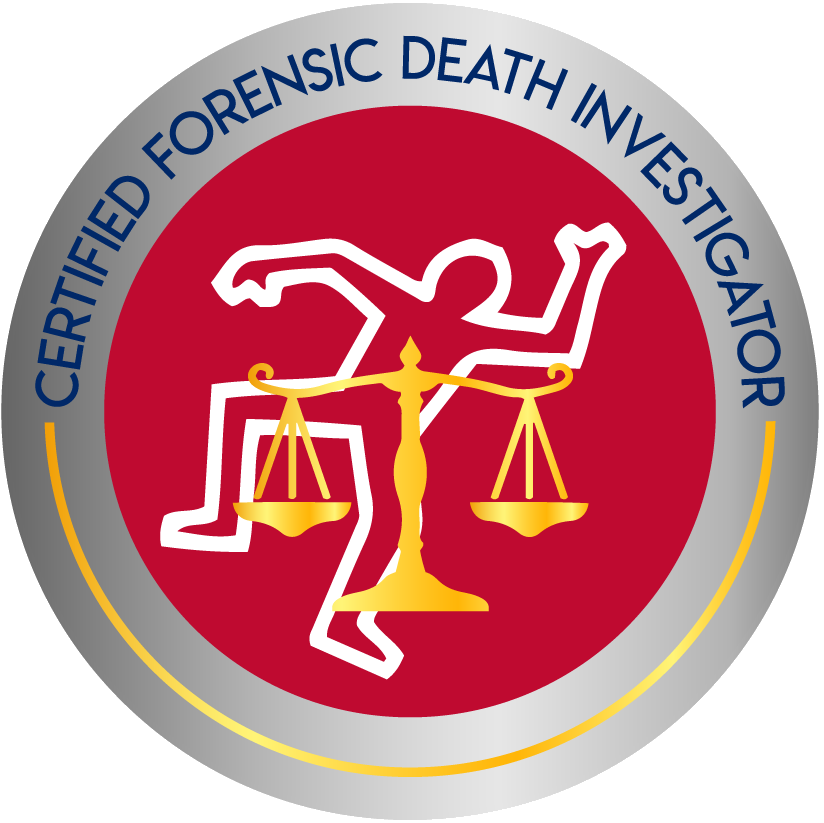
Our goal, our passion, is to simply provide answers to families. Our opinion memorandums are detailed, not as much as for litigation, but enough to summarize the fatal event, investigation and evidence, and then our analysis and conclusions. It is our hope this puts all of the information into a concise and informative document which will bring some answers and closure to loved ones. If there remains any questions, we are available to the family. We learned this while in training and as active deputy coroners - to be a source of factual information for the family. This personal concern - without making the cases personal - was important to families; however, sadly seen in the private cases we review - findings are made and reported, case closed.
We do this for a fee that is significantly lower than what would be charged in a pre-litigation or active litigation case with an attorney. Here are two questions we often hear: 1) why don't we give 'ideas' of our review before we are done; and 2) why do we only provide written findings to families?
First, an important question - What Is the Underlying Importance of Equivocal Death Investigations (EDIs)?
We are asked to consult and review on equivocal death cases for much the same reason as those for litigation - to review the records, reports and photographs (criminal discovery or civil disclosures) and reach a conclusion. Our conclusions are not based on anything else - no other opinions or strategies. We do consider questions and concerns, and see if they can be answered. In litigation cases, there is an accuser (prosecutor, plaintiff) and accused (suspects, defendants). In our EDIs we often have the same - accusers and accused. If someone did not commit Suicide, it is either a Homicide or an Accident - most often concerns and questions of homicide; we rarely see natural; Undetermined is a different topic.
If the decedent was found under suspicious circumstances - either by law enforcement and/or family, there is a person suspected of committing a homicide. In the event the official findings are suicide, and the family disagrees - they may understandably continue their own lay investigation, often having input from others without specific education, training and experience, and exacerbate their emotions. They may pursue a wrongful death civil case - and/or perhaps seek criminal charges against whom they suspect. Regardless of their reasons, which may be very sound in their hearts and minds - and even based on evidence - they may struggle for months to years. Moreover, a person suspected of a crime, which did not happen, may face arrest and confinement - even charges and trial. At best, they are inconvenienced and have some legal fees. At worst, they are convicted and face a long sentence to the death penalty. We strongly feel that our services not only help families with answers and a path to closure, but also prevent a false accusation and wrongful conviction. We are proud of both of these roles.
Why Don't We Give 'Ideas' of Our Review Before We Are Done?
The simple answer is we don't want to give any misleading or potentially false information. We appreciate families checking on the status of our review of their loved one's death. These take time - and we do not rush, although our interest is in not delaying or putting families on another hold for answers. Our process includes each of us independently reviewing all of the available records, reports, and photographs; followed by discussion of the evidence and our independent findings. We then typically will review one more time for details discussed - as each of use may find different key points of consideration. Following that, a determination is made and our findings reduced to writing and sent to the family. Pretty straight forward.
However, as we progress through the evidence, what may be an initial opinion may be amended by additional evidence as we continue. What was initially reported, such as witness statements or the type of injury and circumstances, may be updated by the official investigating agencies. We have found, this is one source of the problems families face - they recall everything they were initially informed of, but struggle with new evidence that changes that. It becomes more complicated when there is a potential, or initial consideration of, criminal charges - leaving families with limited information. We have had agencies provided limited information, to full information on open cases. We only have to work with what is available and provided.
If we were to update a family after reviewing photographs, but no records or reports, and misinform them (or the reverse) - that is a disservice to them. Therefore, we wait until our full review and findings are complete.
In a recent case, with the family represented by their attorney, we were provided limited information by the law enforcement agencies. The attorney requested a report - however, there were two underlying issues - one being we knew there was incomplete information provided. Our initial findings found extensive discrepancies and issues, and the possibility the reported suicide was a homicide. A few months passed, and unexpectedly the balance of the information was released to us. We continued the review and found almost every question and discrepancy answered, as well as additional information that literally brought all of the ambiguity together. We reached a firm conclusion of suicide, and were able to fully demonstrate this to the family. Had this proceeded, as was planned, with a wrongful death claim - it would have been dismissed or lost, and embarrassing to many. Long before this case, we have had a firm position of not having an early and inadequately formed opinion. It is like the media rushing to tell a story, only to change their 'facts' later - no one forgets what was first reported, or pays attention to any subsequent corrections.
Why Do We Only Provide Written Findings to Families?
First, an important differentiation between private consultations and expert consultations in litigation - attorneys may not want reports, based on findings, due to required disclosure. We provide answers through opinions after review of the facts in evidence. We do not provide what might best fit a legal strategy - which would be working backwards from a solution to the questions, and may be in conflict with the facts in evidence. However, we do only provide written findings to families.
Families come to us for answers - and a path to their personal closure. Our written findings provide the following:
- A clear and concise, thought details, document of the case synopsis, our process, and our findings;
- A document that may be shared with other family members, an attorney, other investigators, insurance companies, and medical examiners or other experts specific to the needs of the families;
- A document which prevents forgetting or unintentionally misstating our process and findings; and
- A document which is available any time - without needing to recall a conversation one week, month or year - or years - and relying solely on memory; and
- We have eliminated being misunderstood, our findings misrepresented, and a record of the consultation for our files.
We hope this helps you - as a surviving family member, a fellow investigator or expert, or an attorney - understand our process, goals and purpose. We welcome your inquiries and the opportunity to do for you, what we have passionately done for many since 2008.
Please contact our agency any time - we are always available. For more information about our services - please visit www.WasItSuicide.com


